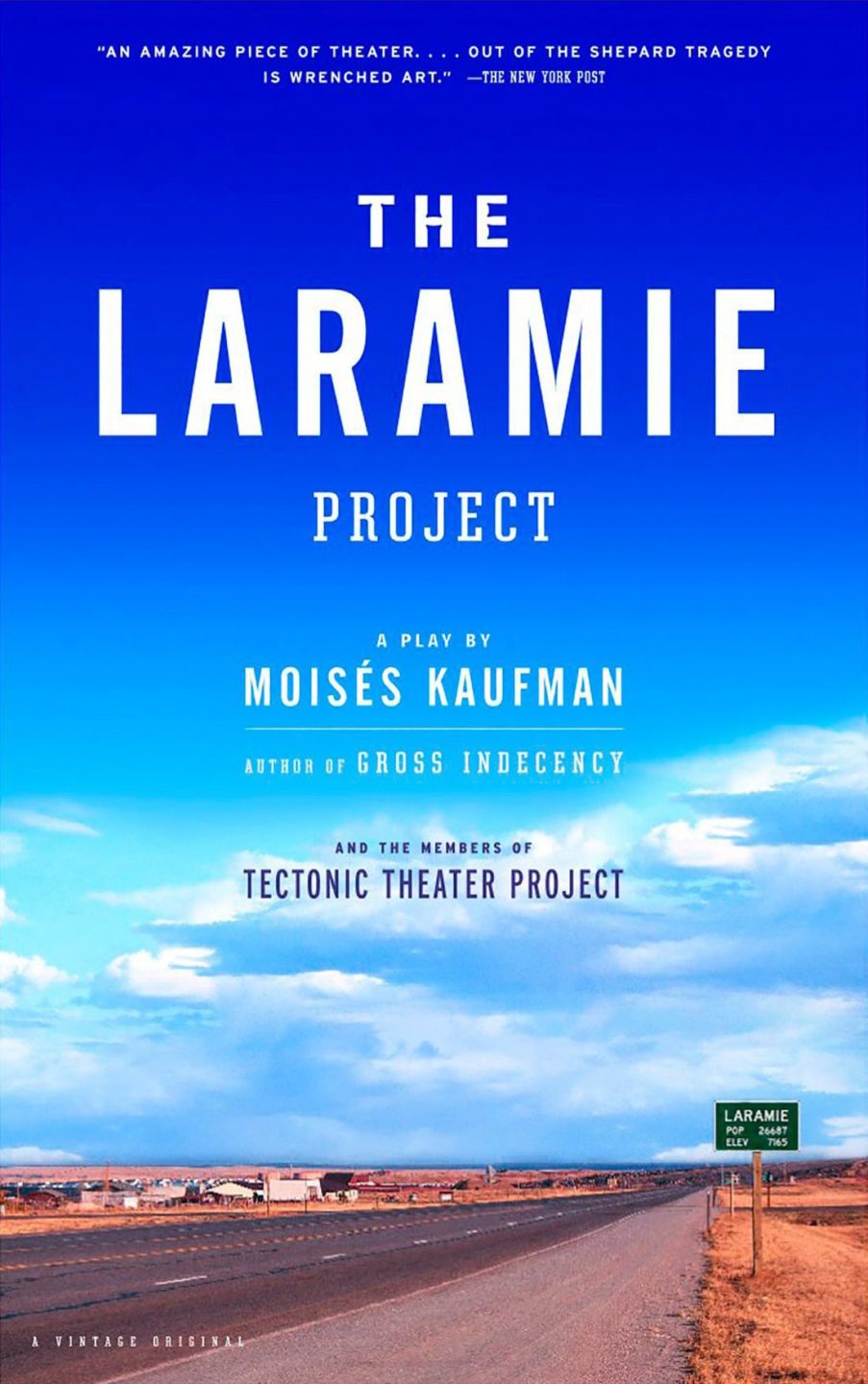On February 26, 2000, The Laramie Project had its world premiere production at the Denver Center for Performing Arts. The play, by Moises Kaufman and the members of Tectonic Theater Project, tells the stories of real people who lived at the epicenter of one of the nation’s most heinous anti-gay hate crimes.
As one of the most frequently performed plays in America, the message has resonated with diverse audiences over the past 20 years, impacting artists, audience members and communities, creating dialogue and inspiring individuals to embrace the dignity and equality of all people.
In celebration of 20 years of The Laramie Project, we wish to thank all of the producers, directors, professors, teachers, and artists of theater companies, universities, schools and community groups around the world who have produced the play.
As we approach the 20th anniversary of the New York premiere on May 18, we will share highlights from productions around the world, sharing unique stories and honoring how Matt’s legacy has impacted lives in a meaningful way. We also suggest reading John Moore’s thoughtful retrospective in American Theatre Magazine.
Post 1 – Unity Theatre Troup (New Jersey)
In Atlantic City, NJ, where theatre is scarce, Unity’s Theatre Troupe attempts to keep the scene alive by hosting improv acting workshops weekly that are free and open to the community. Madelaine Auberon, the artistic director, decided the troupe’s first ever production should be one that could provide the members who had been coming to the workshop for weeks a chance in the spotlight to challenge themselves and say they finally performed onstage. The Laramie Project offered not only the horrific tale of Matthew Shepard and his death that we still mourn today, but an opportunity for the actors that have never been considered in casting rooms as a potential candidate because of their age, looks, and even mental, physical, or speech disabilities. What was so exceptional about our production was that the cast of 20 truly represented a community of people, because that’s what they were. The narrator posed as the “stage manager” onstage to ensure every line was spoken and so that the prop pieces and costume changes were easily handled. In order to seamlessly transition between moments, the actors continuously formed a human fence towards the back of the stage, by holding hands. It was to signify that the townspeople of Laramie were just as much of a witness to the incident as the next.

